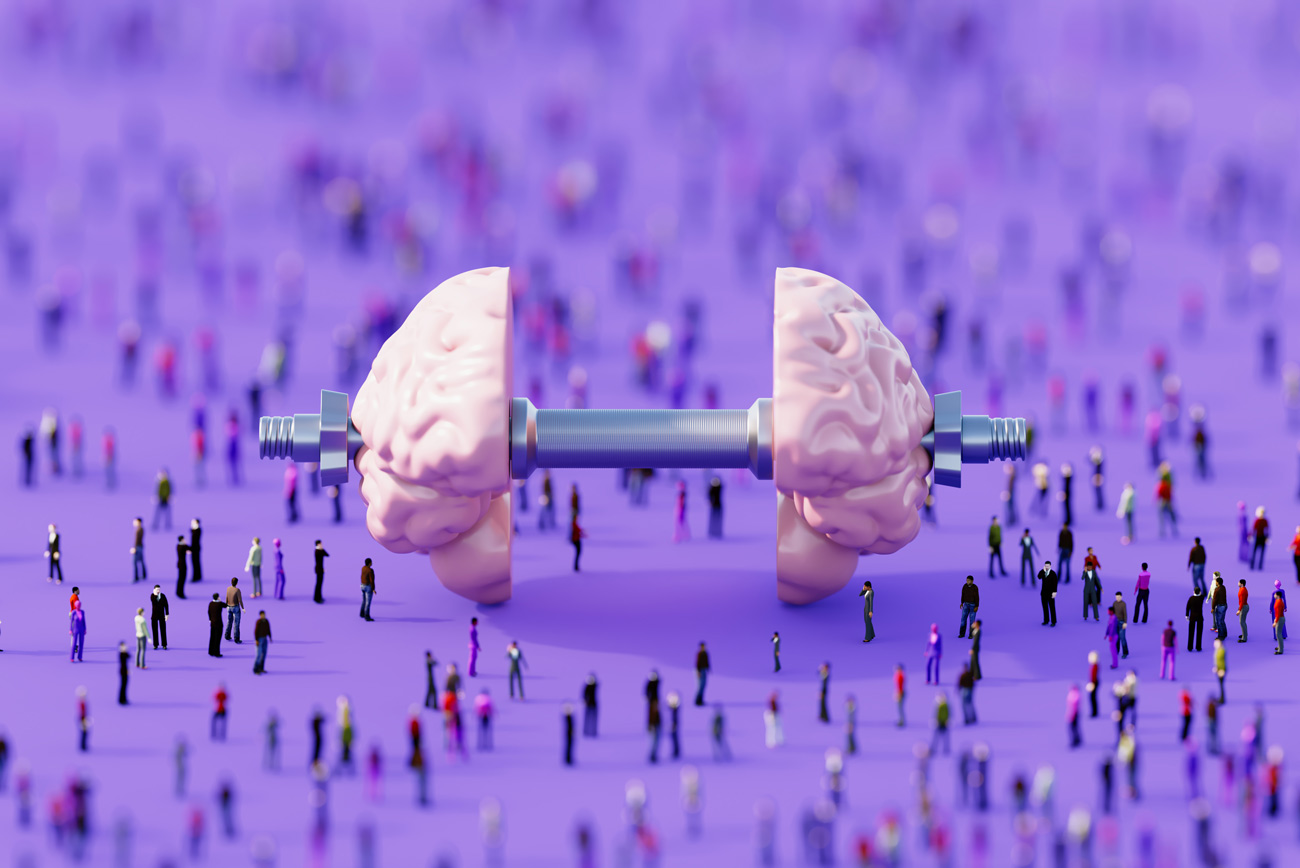
How To Build Mental Resilience – And Why It Matters For Your Mental Health
In recent years, mental resilience has become something of a buzzword, appearing in everything from social media campaigns, to self-help books, to corporate wellbeing plans. But what is meant by mental resilience? And how much of a role does it really play in protecting our mental health?
What is mental resilience?
At its core, mental resilience refers to the ability to adapt to life’s challenges and bounce back from difficult situations. That could be a period of work-related stress, relationship difficulties, bereavement, or other mentally and emotionally demanding circumstances – whatever the issue, the aim of building mental resilience is to help you stay grounded and regain a sense of control.
It’s often mentioned alongside mental toughness, but the two are not quite the same. While mental toughness often suggests pushing through adversity without emotion, mental resilience is more about adapting flexibly and constructively to whatever life throws your way.
That said, resilience is not a silver bullet, and certainly not a replacement for professional help. If you’re struggling with depression or another mental health condition, it’s important to know that support is available, and you don’t have to face it alone.
“Mental resilience can be one helpful tool among many in protecting and supporting mental health,” explains Dr Manan Thakrar, Consultant Psychiatrist at The London Psychiatry Centre. “But resilience is not about suppressing emotions or going it alone. Sometimes the most resilient thing you can do is ask for help.”
Depression and mental resilience
When it comes to depression, mental resilience can act as a buffer, helping you navigate everyday stress, manage emotional triggers and maintain functioning through difficult periods. However, it’s important to stress that resilience alone won’t make depression disappear. Depression is a complex medical condition with biological, psychological and environmental causes. Like any other health condition, it requires a professional diagnosis and a tailored treatment plan which may include therapy, medication, rTMS, or a combination of treatments.
That said, building mental resilience can be a valuable part of recovery and long-term management. It may help you to recognise early signs of relapse, stay engaged with treatment and persevere with healthy routines such as regular sleep, exercise and self-care. For some people, greater mental resilience leads to a stronger sense of agency and the belief that you can take meaningful steps towards feeling better, even on the hardest days.
How is emotional regulation different to mental resilience?
While mental resilience is about how we bounce back from life’s challenges, emotional regulation refers to our ability to manage and respond to our emotions as they arise. Think of emotional regulation as the skill of staying steady in the moment, and resilience as the skill of finding your footing again after being knocked down. Both are important, and they often work together, but they are not interchangeable.
Building mental resilience:
When developing your mental resilience, it may help to first identify what triggers you. Triggers are events or stimuli that cause an emotional reaction. These may be:
- Emotional (feelings that can bring on distress or unwanted symptoms), such as being rejected; feeling abandoned; feeling judged or criticised; experiencing loneliness; undergoing shame or guilt
- Environmental, such as being exposed to loud noises; entering certain environments like hospitals or schools; or experiencing seasonal changes (specifically if you have seasonal affective disorder (SAD))
- Interpersonal (involving interactions with others), such as conflict or arguments; passive aggression; being ignored or excluded; or someone exercising authority or control over you
- Situational, such as going through financial trouble; work-related pressure; exams or deadlines; or major life changes like a breakup, bereavement or moving house
- Sensory or media-based (involving disturbing or distressing things you see, hear or read, either online, in media or in real life), including violent news footage and imagery; written descriptions of violence (whether real or fictional); or intense or frightening sounds, such as a recording of a phonecall to emergency services. Media-related triggers are becoming increasingly common with 24/7 access to online content. For many people, these triggers are involuntary and may have a lasting emotional effect.
Once you have identified your triggers, you can tailor your mental resilience development strategy around them. Here are a few evidence-based methods::
Practice positive thinking
Try to recognise negative thought patterns and gently challenge them. Gratitude journaling is a helpful way to achieve this, with a wealth of evidence suggesting its short and long-term wellbeing benefits.
A study involving healthcare professionals, who generally experience high levels of stress and burnout in comparison with the general population, found that the stress-reducing effects of a 21-day gratitude journaling intervention persisted three months post-intervention. This suggests that small, positive actions towards better mental health can have lasting effects.
Develop coping mechanisms
A coping mechanism is a strategy that an individual can utilise to better manage stress. Your coping mechanisms don’t have to be complicated – in fact, the simpler and more accessible, the better. Common strategies for managing stress include performing breathing exercises, spending time in nature or talking to a friend.
One study found that progressive muscle relaxation (where you tense and then relax and guided imagery was immediately successful in physiologically relaxing study participants, showing that stress relaxation training can be successful in improving wellbeing both psychologically and physiologically.
Seek support
Resilience isn’t about being entirely self-reliant. Talking to a therapist, psychiatrist or support group can be part of building your mental and emotional strength.
Learn from setbacks
View life’s difficult moments as opportunities to learn more about yourself. What helped you last time? What would you do differently? Take your conclusions and apply them to future challenges.
Take care of your physical health
Sleep, nutrition and movement are often underestimated when it comes to mental wellbeing, but it’s important to remember that your mental and physical health are connected – when one is suboptimal, it can have an impact on the other.
Mental resilience vs mental health treatment
If you’re navigating a difficult period or living with depression, resilience can be part of your toolkit, but it’s not a replacement for professional help. At The London Psychiatry Centre, we take a personalised approach to mental health, offering evidence-based, cutting edge treatment, compassionate support and expert-led strategies to help you live well.
If you are ready to take the next step in your mental health journey, our team is here to help. Get in touch with us today by calling 020 7580 4224, or book online using our easy-to-use form.


